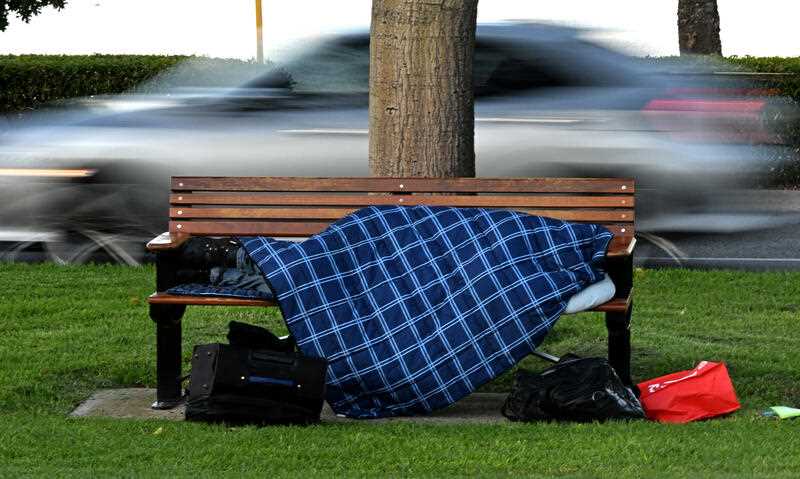Climbing homelessness rates have prompted calls for more action to solve Australia’s housing crisis as crossbenchers continue to negotiate with the federal government on its signature housing policy.
New Australian Bureau of Statistics figures show nearly 123,000 people experienced homelessness on Census night 2021.
This number had swollen by about 6,000 since the 2016 count, a 5.2 per cent lift.
While men make up the bulk of those experiencing homelessness, the number of females without a home rose 10.1 per cent over the five years compared to the 1.6 increase in male homelessness.
Nearly one quarter of those experiencing homelessness were aged between 12 and 24.
Measures introduced during the pandemic to stop the spread of COVID – including housing rough sleepers in hotels – drove an uptick in those sleeping in temporary accommodation and a decline in those sleeping rough.
Greens homelessness spokesman Max Chandler-Mather said the figures should serve as a wake-up call for the federal government.
“Australia is one of the wealthiest countries in the world and it should be a national shame on this government that they’re overseeing the explosion of one of the worst housing crises in our national history,” he said on Wednesday.
He said the government was treating the housing crisis as an afterthought and spending nowhere near enough on social and affordable housing.
Labor is negotiating with the Greens and crossbenchers to pass its signature housing fund that would result in 30,000 new social housing dwellings built in the first five years of the scheme, with up to $500 million spent each year.
The Greens want $5 billion a year in public, community and affordable housing, which they say would build 225,000 homes, along with a national freeze on rent increases.
Minister for Homelessness Julie Collins agreed that too many Australians were experiencing homelessness and said legislating the government’s housing future fund was central to its plans to tackle the crisis.
“Every day we waste not passing this legislation means less housing for those Australians who need it most,” she said.
The government is also working on a new national housing and homelessness plan and has set up a ministerial council to involve all levels of government.
Housing affordability and homelessness organisations also voiced their concerns about stubbornly high homelessness rates.
Community Housing Industry Association chief executive officer Wendy Hayhurst said it had been almost two years since the census and the red-hot rental market would likely have exacerbated the problem.
She urged the government to build on its commitments to ease housing shortages.
National Shelter chief executive officer Emma Greenhalgh welcomed the government’s efforts to act on the housing crisis through the fund and a national homelessness plan but urged it to support vulnerable households in the meantime.
Also on Wednesday, the government pledged to keep an homelessness support program going with a $90 million funding commitment. A total of $91.7 million over three years will go to the community-based Reconnect program targeted towards young people experiencing or at risk of homelessness.
By Poppy Johnston in Canberra
Get local, national and world news, plus sport, entertainment, lifestyle, competitions and more delivered straight to your inbox with the Canberra Daily Daily Newsletter. Sign up here.



